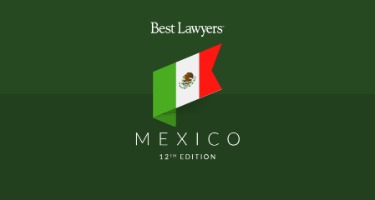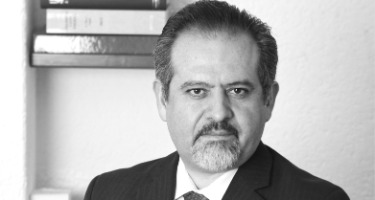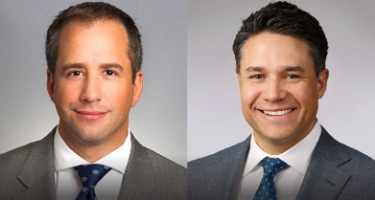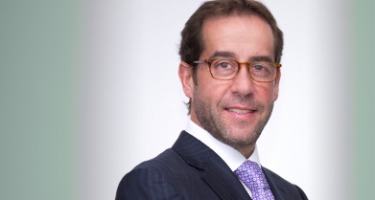An interview with Pablo Perezalonso Eguía of 2018 Mexican "Law Firm of the Year" Ritch Mueller.
First, I just want to congratulate you on your recognition as a “Law Firm of the Year.” With that in mind, can you tell me about some trends you’ve noticed both in banking and finance law and natural resource law in Mexico?
Yes, thank you. We expected 2017 to be a slow year due to the NAFTA talks as well as the economic situation, however, in the end, it was a very dynamic year—a lot of movement with respect to certain areas, particularly the energy sector. As you may know, there was an energy reform in Mexico a couple of years ago, which resulted in a large number of financing deals to entities that are involved in new energy prices. This has been very successful. I think that this is something new, in the sense that in the past, there were price finances and finances of a certain price. This year, we have seen much more activity in this area.
With respect to the banking and finance in general, I would say that we continue to see a large number of cross-border deals, including syndicated loans, as well as work-related to finances granted by the Mexican banks that have been more active in banking than in other years. And at least with respect to this certain sector, which has been very good for us, and that in general these lending and financing activities has been across many sectors, I would probably say that real estate, infrastructure, and energy have been the areas where we have seen more movement and transactions related to financing and projects related to those assets.
With respect to capital markets, I would say that it was quieter than the other sectors we have discussed. There were really few transactions, very few IPOs. I don’t remember exactly—probably no more than five. But there were two very large IPOs where we were involved. One was the Jose Cuervo transaction. The Cuervo transaction was a very large IPO, and the other one was Cementos de Chihuahua. But there were not that many other transactions in the equity sector. With respect to that, there were more transactions, but not as many as in other years.
There were also a few cross-border transactions and one for a financing. There were more in the equity area, but not as many as other years. With respect to the sovereign financing, there were some. The federal government of Mexico, Pemex, and other government entities have been active, and they have continued to issue in the international markets, different markets, and different currencies. And that has been more or less like in other years. That’s a big summary of the last year.
In what ways has your firm adapted to meet your clients’ needs with all those trends happening?
For instance, although we have always specialized in financing transactions and working with banks, we have increased our capabilities in lawyers that are also familiar and have expertise in the energy sector. And related to these energy sectors and infrastructure, we thought we needed support from other areas different than the pure finance or M&A financing type of work, so we brought in—this was two years ago—a team of environmental lawyers that were very helpful to help us both in conducting due diligence for both our financing and M&A clients as well as to really review the viability of different finance prices.
This year we also brought in a team of tax lawyers. Half of them are focused in the energy sector, the other half is focused on the financing sector. And they have been very supportive of all transactions. Clients are very happy that we can provide these additional services, and I think that has worked well. I think that the trend in the future will also be to focus more on these environmental, social responsibility areas with respect to different energy and infrastructure projects that are related to finances and taxes. Clients are also happy that we can provide a single shop both for their financing structuring, together with the transaction tax structuring, which is what we do, basically.
What qualities does your firm have that you think led to the “Law Firm of the Year” recognition?
I think that we have always been very innovative in the Mexican market for many, many years. I mean, our firm is almost 44 years old. And we have always been very active in creating new structures and new documentations. There are a lot of documents that are now standard in the Mexican market that were created in our firm, starting from the forms of legal opinion that a lot of Mexican law firms use, to many forms of agreement, including the standard loan agreements, to going to the local realty and repo master agreements that were all drafted here.
We have always tried to be very close to our clients, trying to produce these new products, trying to stay away from the work that may be viewed as a commodity. We always try to provide something additional to our clients, and we prefer to be involved in sophisticated transactions and play many repetitive types of transactions. We have the expertise because of all the years that we have been involved with these types of transactions. We tried to teach our associates here about this work ethic and try to be as sufficient and as responsible as possible—and get the best work in the most efficient way for our clients.
What can you tell me about your new practice that you opened at the beginning of this year?
This is still a new area. We opened a tax advisory area, which we have been focusing more on providing advice with respect to our transactional work, so this is something we do hand in hand with the financing lawyers and together with the tax lawyers in order to get the best structure for financing. We also provide some tax consulting services to our clients, mainly related to these types of financing transactions or investment in companies purchased in Miami. Right now, we are not doing but will do so in the future things like tax litigation or tax planning, which is different than the creation of structure in our financing transactions.
Lastly, can you tell me about a landmark case you worked on, and if it possibly affected any law or policy within that sector?
Let me think about that. We participated in a lot of large transactions, but let me think about one that resulted in a change of law. That’s a good question. We have created new forms of transaction that have been breaking ground in Mexico, but they are more of a result of changes law and regulation, not the other way around. Although, we have been active in assisting parts of the government in Mexico for new laws and new types of transactions. For instance, there’s a new law called the “Fintech Law” for all the financial technology law, and we were consulted, unofficially, by the minister of finance to provide our comments, but the Mexican anti-trust commission requested that we help them to make comments and changes in the proposed bill that was submitted to Congress. We did that. All our comments were submitted by the Mexican anti-trust commission as their own comments.
So that type of work is what we also engage in. We have done the same thing for other types of products, mainly in the financial derivatives. We have been very close to the Mexican banks when they are requesting amendments or proposing changes and adjustments to legislation. That is the work we do with respect to that particular type of request made by clients. But I’m not sure if I can tell you about a transaction that has resulted in a change of law.
Is there anything else you would like to add?
We’re looking to the next year to new areas where we think there will be more work, which is probably not the main core of business as the financing transactions, but these types of transactions that could help us or that would be more relevant for our clients and our banks in the transactions. For instance, anything related to anti-corruption or FCPA or those types of things that banks have asked frequently. They have more questions related to their counterparties or their investments. That’s an area where we would probably be increasing our participation because that’s what our clients need.

































